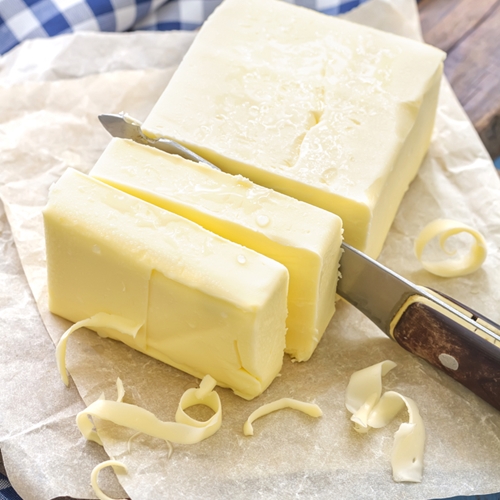 For decades, people have argued over the health benefits of consuming margarine rather than butter. Not too long ago, medical experts believed butter and saturated fat were dangerous. Vegetable-oil margarine flooded the market after the ensuing media? firestorm. Today, research shows that margarine also has a dangerous side, containing harmful trans fats. Whether you are a student taking Austin culinary arts courses or looking out for the health of a family member, you should know these facts about both margarine and butter:
For decades, people have argued over the health benefits of consuming margarine rather than butter. Not too long ago, medical experts believed butter and saturated fat were dangerous. Vegetable-oil margarine flooded the market after the ensuing media? firestorm. Today, research shows that margarine also has a dangerous side, containing harmful trans fats. Whether you are a student taking Austin culinary arts courses or looking out for the health of a family member, you should know these facts about both margarine and butter:
Margarine is better for heart-conscious people
Because margarine is made from vegetable oils, it has a very low amount of cholesterol. It is well known that high cholesterol levels can lead to a variety of heart and heart-related diseases like high blood pressure and stroke. A diet low in cholesterol reduces this risk. Margarine is also full of helpful polyunsaturated and monounsaturated fats. The unsaturated fats in margarine help lower your the low-density lipoproteins (LDLs) in your blood by increasing your body’s high-density lipids.
Butter is usually made with animal fat, so it has a substantially greater amount of cholesterol and saturated fat. According to the Department of Agriculture, 1 tablespoon of butter has 100 calories, 30 milligrams of cholesterol and 11.5 grams of fat. More than 7 grams of that fat is saturated. Compared that to margarine, which has only 2 grams of saturated fat and no cholesterol.
There are different ways of making margarine
Various types of margarine are available that are not all made the same way. Some brands of margarine contain synthetic trans fats. These laboratory-produced fats can dramatically increase a person’s risk of heart disease or other heart related problems. Margarine also contains emulsifiers, coloring and other artificial ingredients. You can tell which types of margarine have more trans fats just by looking at its consistency. If it has a more solid texture, the presence of trans fats is higher.
Commercially produced butter is made with only one ingredient – cow’s milk. The fatty portion of the milk is churned until it turns into butter. Butter blends that have olive or canola oil can cut down the product’s saturated fat and cholesterol.
Talk with your doctor
People who suffer from high cholesterol should check in with their primary physician before consuming butter and margarine. Ask them about spreads that are fortified with plant stanols and sterols, which could help reduce your cholesterol levels.


